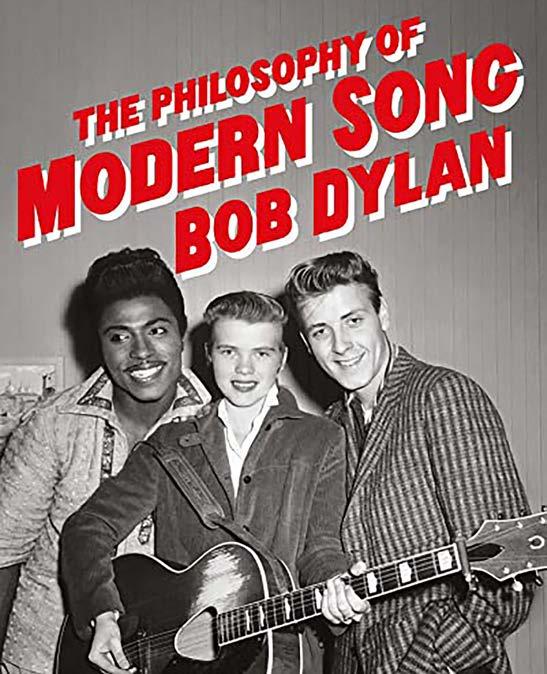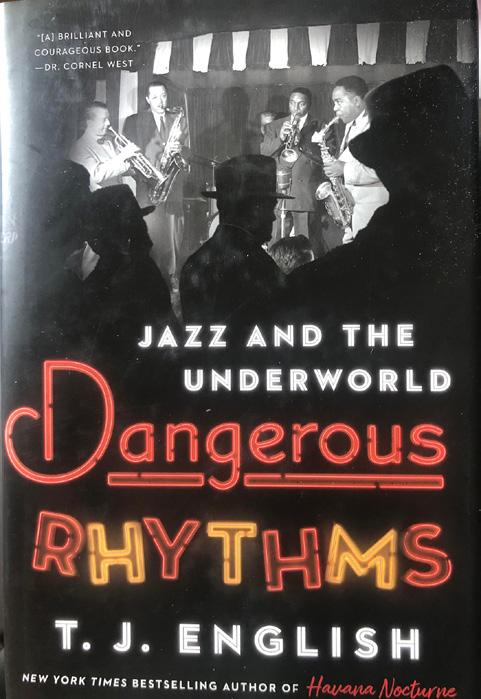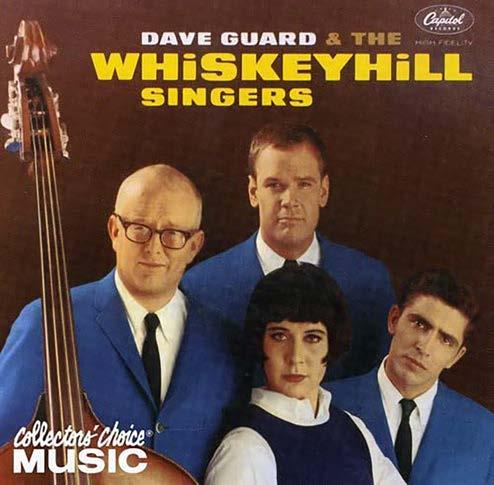
9 minute read
BRINGING IT ALL BACK HOME
“How much do you know?” Ella Hooper says when I ask about her new solo album, Small Town Temple. “Oh God, I haven’t quite prepared,” she adds. “This is the first time I’ve spoken to someone about the record. It’s hard to get into. Do you have your tissues ready?” Of course, most Australians know the Ella Hooper story so far. As a dreadlocked teenager, she topped the charts fronting Killing Heidi, the band she shared with her older brother, Jesse. Alternative pop hits such as ‘Weir’ and ‘Mascara’ are seared into the memories of anyone who was a music fan at the start of the 2000s.
Killing Heidi’s debut, Reflector, was one of the fastest-selling Australian albums ever. It entered the ARIA charts at number one, spent six weeks on top, went five times platinum and won four ARIA Awards, including Album of the Year. Fame came fast – ‘Mascara’ hit number one on Hooper’s 17th birthday – and it took a toll. “For a long time, I felt awkward about my success, that I had to apologise for it,” Hooper reveals. “Maybe I would have been more credible and respected if I’d come up the slower way? Being a bit of an overnight success with Killing Heidi really had its challenges. I wasn’t in it to be famous, I was in it to be a musician, but I got very famous, in a really strong, identifiable, Australia-wide kind of way. “And once you go up, there’s only one way to go – and it’s down. Once you’ve been at number one, well, there isn’t another position … it’s going to go down. “And I’ve lived that.” “Everything I know, I’m going to have to unlearn,” she sings on the new album. “If I want to fly high, do I have to burn?” Feeling a little lost, Hooper travelled to the US in 2017. “I finally got to have my Nashville experience, and I had the best time ever. I felt like I saw my future.” Hooper connected with country artist Sara Douga, one of Jim Lauderdale’s key collaborators, who released her debut album in 2018, Boots, Bras, and Drawers. “Sara and I have a similar energy – we’re both motor-mouthed brunettes,” Hooper laughs. They agreed to do some co-writing. “But I was on such a party trip and I cancelled most of my co-writes. I said, ‘I’ll get to it next time.’ But there wasn’t a next time.” During the pandemic, Hooper went home to visit her mum. Then Covid struck and she was stuck. Douga provided a lifeline, organising some songwriting sessions via Zoom. “It would be early morning in Violet Town, and late in the day in Nashville. Sara would put her kids to bed and then have a couple of hours with me. She really helped me shape the record and helped me believe that I could finish it. “Sara really was my cheer squad, which I needed, because sometimes I felt so alone. She was an amazing friend and touchstone. And she’s a great writer and singer. Talk about true country; she’s the real deal, proudly traditional country. “I bring the alt and she brings the country.” Douga helped Hooper finish the title track of the new album, and they also wrote ‘Old News’ together, a key track on the album, where Hooper confronts some demons – “I feel like I’m just old news, hung up on some teenage blues” – prepares for another ride (“I’m pasting all my war paint on”) and realises that the fire within has not been extinguished. “I will not apologise,” she declares, defiantly, “for wanting the whole fucking ride and all the colour it brings.” “I guess ‘Old News’ is a message to myself,” Hooper admits. “It’s okay to be ambitious and still have dreams.” The first thing you notice when you drive into Violet Town is the distinctive sign welcoming visitors. It was created by renowned Aussie artist Michael Leunig, who calls Violet Town home. He says his signs are “cheery, unusual, colourful and show the spirit of the town, a town that dares to be different – a town that encourages creativity”. Nestled next to the Honeysuckle Creek, the town – home to about 700 people –has a thriving artistic community. At a recent gig, Hooper introduced one of the new songs, “Here’s another song about Violet Town … I’m going to be saying that a lot tonight.” Killing Heidi put the town, in northeast Victoria, on the map. “Where I grew up is actually part of many trivia nights in pubs all around the country,” Hooper smiles, remembering how she once discovered that her band was a “liddle fact”. Among the trivia printed on the lid of a bottle of Spring Valley juice (“Disco means ‘I learn’ in Latin”; “The first typewriter was called the ‘literary piano’”) was this fun fact: “Australian rock band Killing Heidi is from Violet Town”. Hooper admits that she and Jesse “couldn’t wait to get out of Violet Town and get to Melbourne”, but Small Town Temple is unashamedly a love letter to their hometown.
Advertisement
“I thought the big city held all the opportunities and answers,” Hooper says, “but it just wasn’t the case.” Hooper often wonders if her childhood, on a farm in the Strathbogie Ranges, about 20 minutes out of town, was as idyllic as she remembers. “Jesse and I will often say to each other, ‘Was that real? Was it as beautiful and as magical as we remember it?’ “And I think it was.” Jesse plays on The Basics and Stuff, which celebrates their upbringing. “Didn’t come from nothing,” Ella sings, “but I didn’t come from much.” “It was very isolated and very beautiful,” she recalls. “We didn’t have much, but what we had was this special piece of land and a very humble house. We had loving parents, a piano, a violin, a couple of guitars, a mandolin, a banjo, recorders, and long afternoons and long evenings. We’d walk around in the bush and make up songs because we had nothing else to do.” But the grass was always greener … “You had bushies and townies. We always wanted to be townies – they were urban and cool. The big smoke of Violet Town! “We were hippie kids from up on the hill. And they all thought we were a little weird.” Small Town Temple is bookended by contributions from Hooper’s parents. Her mum, Helen, sings the intro, a poem Hooper wrote to set the scene. In a voice strikingly similar to her daughter, Helen sings of “a humble little mystery waiting there for you”. And Hooper’s dad, Jeremy, closes the record, providing the alto recorder outro on ‘Long Gully Road’. Hooper dedicates the record to Violet Town and her parents, “for all they taught me with their lives and their love of music”. And this is the part of the story where you need the tissues handy. Just after hearing the finished album, Jeremy had a shock cancer diagnosis. He died suddenly, and two weeks later, Helen also died, after having battled breast cancer for 18 months. “It’s been a very strange time, to say the least,” Hooper says. “The album is not about that, but I am so grateful that something told me to include my parents. I didn’t know they were going to die when I put them on the record, and I’ve never had them on any of my records before. But they’re the reason I do music, the reason I am who I am, why I love Linda Ronstadt and Joni Mitchell.

“It’s all them, so it feels freakishly apt that they open and close the record.” Her parents’ passing adds a poignancy to a collection of songs that was already deeply personal. The title of the record was inspired by her mum’s house, an old church, where everyone was welcome. She considered calling it “Small Town Stupa”, after a Buddhist shrine, “but I was worried it would sound like stupor.” She laughs. “Which could also work. But Small Town Temple just felt right.” The album was produced by Marcel Borrack and Tim Harvey. Harvey is the guitarist in Hooper’s band, but she didn’t know Borrack, who also plays with Dan Warner. “Marcel was a revelation. He’s such a soft, lovely, gentle, creative soul, and he’s become a really good friend.” Together, they have crafted a record that also translates live. “It’s been a while, I think I’ve lost a few of my rock ’n’ roll moves, even though I’ve been doing this since I was 13 years old,” Hooper told the crowd when she returned to the Melbourne stage recently, at the Northcote Social Club. A few nagging doubts remain, with Hooper singing, “Who am I to try to take another bite of the cherry?” But Small Town Temple is so strong, Hooper deserves to find a big new audience. It’s only January, but this will definitely be one of the albums of the year. When I suggest that Hooper sounds like a modern-day Linda Ronstadt, her smile is wide. “Shut up,” she exclaims. “Linda Ronstadt, she’s my favourite.” A rootsy reinvention it might be, but it feels like this is the record that Ella Hooper was always destined to make. The big pop production of the Killing Heidi days is long gone. The focus is now on the singer and the song. It’s taken her a couple of decades, but Hooper is back to where it all began. The record company bio for the new album starts with a quote from T.S. Eliot: “And the end of all our exploring will be to arrive where we started and know the place for the first time.” It seems apt. Hooper smiles when asked what role Violet Town has played in her creative life. “When we started the band, what did I have to draw on?” she reflects. “I hadn’t had a boyfriend; all I had to write about was my town and my surroundings, friendship and community.” Twenty-seven years after the beginning of Killing Heidi, Violet Town remains a major muse. Though Hooper now has a few other things to write about as well. The dreadlocked teenager is all grown up. “This is not about death,” she emphasises when we conclude our chat. “If I was a religious person, I might think I was divinely guided to make this record. But I’m not.” Whatever the record is, one thing is clear: Ella Hooper is where she wants to be. Or she’s almost there. “I feel like this is a transitional record,” she says. “Now, I’m not sure if anyone gives two hoots about a solo record from me but, you know what, I don’t even really care anymore. I’m just going to keep writing songs and try to make it more me and less reactive to whatever’s around. “And I think this is the start of that journey.”
Small Town Temple is released January 20 on Reckless Records.












